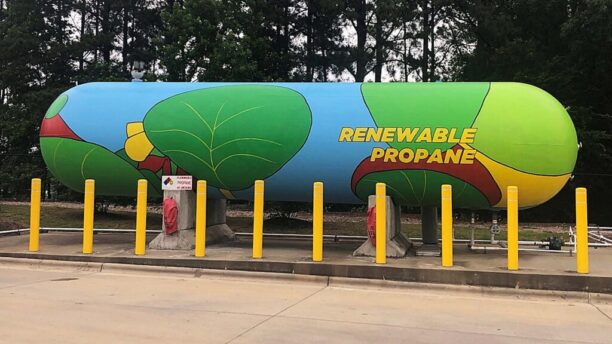Integrating Renewable Propane into Business Strategies
Renewable propane offers a sustainable alternative that can significantly enhance a business’s environmental profile while meeting energy needs. Read on as we discuss successfully incorporating renewable propane into your business strategies, ensuring both ecological and economic benefits for all parties involved. Understand Renewable Propane Begin by understanding renewable propane and how it differs from conventional… Continue reading Integrating Renewable Propane into Business Strategies
Renewable propane offers a sustainable alternative that can significantly enhance a business’s environmental profile while meeting energy needs. Read on as we discuss successfully incorporating renewable propane into your business strategies, ensuring both ecological and economic benefits for all parties involved.
Understand Renewable Propane
Begin by understanding renewable propane and how it differs from conventional propane. Renewable propane has a lower carbon footprint and is produced from renewable resources like biomass, fats, oils, and greases. It is chemically identical to traditional propane, allowing it to be used with existing propane appliances and infrastructure.
Evaluate Your Energy Needs
Assess your current energy usage and needs. Understanding these helps determine how much renewable propane you might want to integrate into your operations. Consider potential energy savings and environmental impacts, which can influence your procurement strategy.
Source Suppliers
Identify suppliers that offer renewable propane. Given its growing popularity, more suppliers are beginning to carry renewable options. Establishing relationships with these suppliers ensures a consistent supply and often better terms due to the partnership.
Communicate Benefits
Educate your customers and stakeholders about the benefits of renewable propane. Emphasizing its environmental advantages, such as reduced greenhouse gas emissions and sustainable production methods, can enhance your company’s reputation as environmentally responsible.
Adjust Pricing Structures
Consider your pricing structure. While renewable propane might come at a premium, many consumers are willing to pay extra for sustainable products. Analyzing market trends and customer feedback can guide pricing structure to cover costs while still remaining competitive.
Create a Marketing Strategy
Develop a marketing strategy that highlights your commitment to sustainability through the use of renewable propane. This can attract new customers who prioritize eco-friendly products and services and can differentiate your business in the market.
Monitor Performance
Regularly monitor the performance and impact of incorporating renewable propane into your operations. Assess the environmental and economic effects, and adjust your strategy based on performance data and evolving business goals.
Seek Certifications
Obtain sustainability certifications that can be promoted as part of your business credentials. Certifications like LEED (Leadership in Energy and Environmental Design) can validate your environmental efforts and appeal to a broader customer base.
Plan for Scalability
As your use of renewable propane begins to produce benefits, plan for scalability. This might include expanding the use of renewable propane across more areas of your business or increasing the volume as part of your energy mix.
Engage in Industry Advocacy
Participate in industry forums and advocacy groups promoting renewable energy. Engaging with these groups can inform you of regulatory changes, subsidies, or incentives that might benefit your business and enhance your industry presence.
Reap the Benefits
Incorporating renewable propane into your business strategy supports sustainability. It provides a competitive edge in a market increasingly geared towards ecological responsibility. Through careful planning, effective marketing, and strategic partnerships, businesses can successfully integrate renewable propane and reap its numerous benefits.


